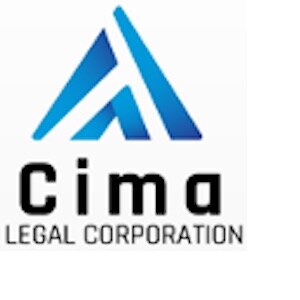Best Private Equity Lawyers in Quito
Share your needs with us, get contacted by law firms.
Free. Takes 2 min.
List of the best lawyers in Quito, Ecuador
About Private Equity Law in Quito, Ecuador
Private equity in Quito, Ecuador refers to investments made into private companies or assets, often for the purpose of growth, restructuring, or buyouts. In this context, private equity can fuel expansion, modernize operations, or help companies bridge financial gaps. Private equity investors are typically sophisticated professionals or institutions, and deals in this sector often involve complex legal and financial strategies. The legal framework in Quito is influenced by both national Ecuadorian law and international best practices, making it vital for participants to understand the specific rules that govern investments, regulatory compliance, and exit strategies.
Why You May Need a Lawyer
Entering or managing a private equity transaction in Quito is a complex process that can present various legal challenges. You may need legal advice in situations such as:
- Negotiating the terms of an investment or buyout
- Drafting and reviewing shareholder agreements
- Structuring cross-border investments or compliance with foreign investment regulations
- Carrying out due diligence on target companies
- Managing regulatory and tax implications
- Resolving disputes among stakeholders
- Assisting with mergers and acquisitions that involve private equity financing
- Ensuring compliance with anti-money laundering and anti-corruption laws
A specialized private equity lawyer can help you navigate these complexities, mitigate risks, and safeguard your interests throughout the investment lifecycle.
Local Laws Overview
Private equity in Quito is governed primarily by Ecuadorian company law, the Commercial Code, the Organic Law of Market Power Control, and regulations issued by the Superintendence of Companies, Securities, and Insurance. Investors must also comply with tax regulations set by the Internal Revenue Service of Ecuador.
Key aspects include:
- Foreign Investment: Ecuador welcomes foreign investment but may require certain approvals or notifications depending on the sector and amount involved.
- Corporate Structures: Most private equity investments use sociedades anónimas (corporations) or sociedades de responsabilidad limitada (limited liability companies) as vehicles. The choice affects governance, liability, and tax treatment.
- Contract Law: All agreements must comply with Ecuadorian contract law, including shareholder agreements, investment agreements, and exit mechanisms.
- Taxation: Local and foreign investors may be subject to income tax, capital gains tax, and value-added tax. Double taxation treaties may apply in some cases.
- Regulatory Oversight: Certain sectors, like banking or telecommunications, face additional regulatory scrutiny and require sector-specific permits for investments.
- Labor Law: Transactions that result in structural changes may trigger labor issues that must be handled in compliance with Ecuadorian labor laws.
Frequently Asked Questions
What is private equity?
Private equity involves investing capital in private companies or assets, often to help them grow, restructure, or change ownership, with the aim of earning returns for investors.
Is foreign investment in private equity allowed in Quito, Ecuador?
Yes, foreign investment is permitted. However, certain sectors may have restrictions or require regulatory approval. Documentation will be required for registration and compliance.
What legal structure is most commonly used for private equity in Ecuador?
Sociedades anónimas (corporations) and sociedades de responsabilidad limitada (limited liability companies) are the most common structures due to their flexibility and limited liability nature.
Do I need to register my investment with any public authority?
Investments in Ecuador may need to be registered with the Superintendence of Companies for compliance, and foreign investments often must be reported to the Central Bank of Ecuador.
How are private equity transactions taxed?
Taxation depends on the structure and specifics of the deal. Capital gains tax, income tax, and value-added tax may apply. Consulting a lawyer or tax advisor is recommended.
What due diligence is recommended before making a private equity investment?
Due diligence usually includes reviewing corporate records, financial statements, tax compliance, licensing, contracts, real estate, labor liabilities, and ongoing litigation.
Can private equity investors have board representation?
Yes, agreements can provide investors with board seats or observation rights, subject to the company's bylaws and shareholder agreements.
Are there restrictions on repatriating profits to foreign investors?
Ecuador allows profit repatriation, but there may be withholding tax implications and certain reporting requirements. It's important to plan these with legal counsel.
What exit strategies are available for private equity investors?
Common exit strategies include the sale of shares to third parties, buybacks, mergers or acquisitions, and public offerings, each with its own legal requirements.
How can disputes related to private equity transactions be resolved?
Disputes can be resolved through negotiation, mediation, local courts, or arbitration, depending on what is agreed in the relevant contracts. International arbitration may be an option in cross-border deals.
Additional Resources
- Superintendence of Companies, Securities, and Insurance (Superintendencia de Compañías, Valores y Seguros): Primary regulatory authority for corporate compliance.
- Internal Revenue Service (Servicio de Rentas Internas): Tax information and regulations for investors.
- Central Bank of Ecuador (Banco Central del Ecuador): Oversees registration and control of foreign investments.
- Ecuadorian Chamber of Commerce: Networking and guidance for business operations in Quito.
- Local Law Firms: Many Quito law firms have practice groups dedicated to private equity and investment law.
Next Steps
If you are considering or already involved in a private equity transaction in Quito, Ecuador, it is highly advisable to consult with a local lawyer experienced in private equity law. Here are the steps you can follow:
- Define your investment goals and prepare preliminary documentation.
- Contact a reputable law firm in Quito that specializes in private equity.
- Schedule an initial consultation to discuss your needs and receive guidance on compliance, taxation, and regulatory matters.
- Engage legal assistance for due diligence, negotiation, and drafting of investment agreements.
- Ensure your lawyer coordinates with relevant authorities and guides you through all government filings and registrations.
- Discuss long-term strategies, including proper structures for exit and profit repatriation.
Early legal involvement can save time, reduce risks, and ensure that your private equity investment complies with all local requirements in Quito, Ecuador.
Lawzana helps you find the best lawyers and law firms in Quito through a curated and pre-screened list of qualified legal professionals. Our platform offers rankings and detailed profiles of attorneys and law firms, allowing you to compare based on practice areas, including Private Equity, experience, and client feedback.
Each profile includes a description of the firm's areas of practice, client reviews, team members and partners, year of establishment, spoken languages, office locations, contact information, social media presence, and any published articles or resources. Most firms on our platform speak English and are experienced in both local and international legal matters.
Get a quote from top-rated law firms in Quito, Ecuador — quickly, securely, and without unnecessary hassle.
Disclaimer:
The information provided on this page is for general informational purposes only and does not constitute legal advice. While we strive to ensure the accuracy and relevance of the content, legal information may change over time, and interpretations of the law can vary. You should always consult with a qualified legal professional for advice specific to your situation.
We disclaim all liability for actions taken or not taken based on the content of this page. If you believe any information is incorrect or outdated, please contact us, and we will review and update it where appropriate.
















